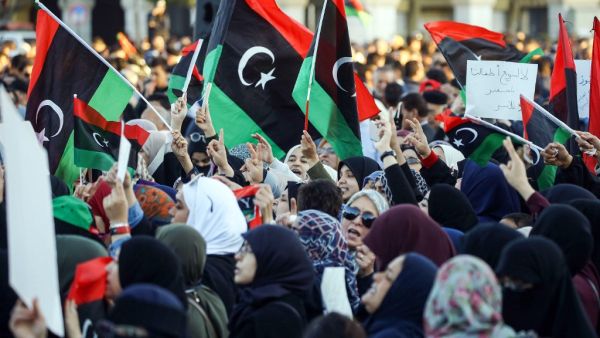Voter turnout appeared low Sunday morning as Tripolitans headed to the polls in the by-election for a parliamentary seat that was left vacant following a successful appeal of last year’s May elections.
Polls opened at 7 a.m., in an election that observers and pollsters have said is all but decided in favor of Future Movement member Dima Jamali, who occupied Tripoli’s fifth Sunni seat before the Constitutional Council unseated her in February.
Jamali is backed by Prime Minister Saad Hariri, former premier Najib Mikati and former ministers Ashraf Rifi and Mohammad Safadi. The latter three are all Tripoli heavyweights, and could have posed a challenge to Jamali’s run if they had fielded candidates.
The six candidates still in the running will face an uphill battle to secure enough votes from the district’s 241,000 eligible voters.
Candidates in the running include Nizar Zakka, who is currently imprisoned in Iran, former MP Misbah Ahdab, Yahya Mawloud, Talal Kabbara, Omar al-Sayyed and Hamed Amcha.
Mahmoud al-Samadi last week withdrew his candidacy and threw his support behind Jamali. But his name will likely remain on the ballot as he stepped down after the April 3 deadline to withdraw.
{"preview_thumbnail":"https://cdn.flowplayer.com/6684a05f-6468-4ecd-87d5-a748773282a3/i/v-i-b…","video_id":"b6bd8e2d-6578-432e-ae3b-24342f725924","player_id":"8ca46225-42a2-4245-9c20-7850ae937431","provider":"flowplayer","video":"Sudan’s Army to Make Important Announcement Soon"}
On call from prison in Iran with local news channel LBCI, Zakka called on the people of Tripoli to “vote your conscience, not for the billionaires’ club.”
Zakka said he was running to represent “every oppressed Lebanese.”
Meanwhile, Interior Minister Raya El Hassan called on people to vote, even if they had doubts over some parts of the electoral process. “Don’t relinquish your democratic right, even if [citizens] have some issues with the process or questions about the social and economic situation,” she said in an impromptu news conference from the Interior Ministry.
“We hope to see a good voter turnout,” she added, noting the results could be announced shortly after midnight.
Meanwhile, many prospective voters told local news channels that they didn’t feel represented by any of the candidates and wouldn’t be casting ballots. “I vote for a plate of hummus and a plate of foul [fava beans],” one elderly man said when asked who he would vote for, as he ate the popular breakfast staples at a Tripoli restaurant.
Others noted they would be voting against Jamali. “She’s a candidate who hasn’t accomplished anything in nine months,” one man said, adding that the average Tripolitan “doesn’t know her.” A supporter of Jamali replied: “I heard her saying on TV that she would work for the country. ... Give her time.”
Another man said he would vote for Mawloud, who ran with independent coalition Tahalof Watani in last year’s polls. “I don’t know Yahya Mawloud, but I support someone who stands against the symbols of the political class,” the man said, adding that he had voted for Jamali in May but was unsatisfied with her performance.
He added that he had qualms about Hariri’s alliance with Mikati to back Jamali. “Mikati’s government was known as the government of Hezbollah. I ask Hariri: How could you be allies with Mikati?”
The election is notably taking place without Taha Naji, the man whose successful appeal against Jamali ultimately resulted in her ouster by the Constitutional Council.
Citizens can file complaints or note violations to the electoral process at the Interior Ministry hotline, 1766.
This article has been adapted from its original source.








